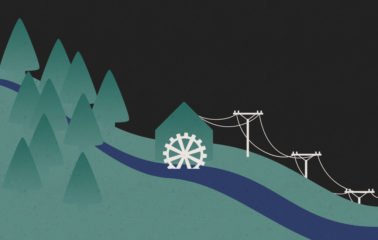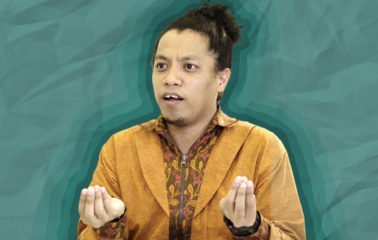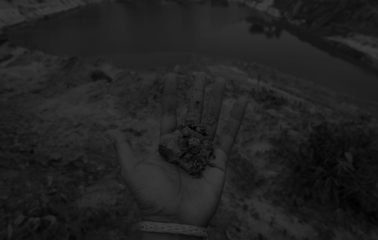For women, forests and land are not only economically valuable, but have broader meanings. Forests and land have social value, cultural value and part of the existence of women’s lives. These values must be guarded and maintained.
Moreover, women in the community both in and around the forest area earn more than half of their income from the forest than men, where income from activities in the forest reaches one fifth of the total income of households in rural families in and around the forest. Although the contribution of men appears to be greater than women because of their activities in producing several household income, women are involved in activities related to basic needs, land management, and processing of forest products and gardens.
Forestry is generally regarded as a sector dominated by men, making it difficult for women’s participation in managing forests and decision making, where women are often not involved in efforts to encourage community forestry initiatives.
In fact, owning assets such as land will strengthen the position of women in households and society and provide incentives to manage resources sustainably. Involving women in forest-related decision-making shows a positive effect on a range of forest management issues, including the regulation of various illegal activities and the capacity of community groups to manage conflicts, besides ensuring women’s involvement in providing input and decision-making can contribute to improving forest governance and preservation of natural resources.
In ensuring fairness and equality in natural resource management in Indonesia, the SETAPAK program and CSO partners work to ensure the involvement of women at the community level in advocacy work; compile village budgets that accommodate the needs of women’s groups, monitor the activities of land-based industries that violate, provide input in decision-making meetings, and engage in village / other institutional management so that they can accommodate the proposals of women groups and are critical in incorporating gender components in the formulation of policies and as input or consideration in decision making.
In implementing a gender responsive approach in the field, there are some of challenges that are recognized including:
- The lack of recognition and participation of women.
- Advocacy for land conversion is generally dominated by male.
- CSO have not integrated Gender Responsive Approach (GRA) into program and activity plans.
- Lack of initiatives to use gender analysis in policy products.
- Gender-based approaches are often translated as programs that focus on micro-economic activities, not encouraging women’s groups to be involved in decision making.
To answer these various challenges, the SETAPAK program together with partners continues to strive for gender justice in forest governance, with the following strategies:
- Encouraging the transformation of land use change policies and sustainable forest management that is gender-based.
- Strengthen SETAPAK partners to be able to use gender analysis through a variety of capacity building programs, providing assistance to communities and women and ensuring specific programs for women in the regions that need them.
- Encourage the emergence of women’s local champions at the community level.
- Strengthening access and control for women’s groups in natural resource management, especially the forestry sector through the implementation of gender-equitable policies.The program of agrarian reform and social forestry should be encouraged and aimed specifically at women’s groups with facilitation and assistance.
- Strengthening law enforcement over violations of natural resource management, especially the forestry sector, which often has a negative impact on livelihoods and the socio-cultural value of women’s groups.The arrangement and revocation of forestry sector permits and those related to forest areas must be followed by strong and maximum commitment and coordination with other vertical agencies and local governments and encourage the involvement of communities around forest areas, especially women’s groups.
- 35/2015 of the Constitutional Court consistently implemented in the recognition and protection of indigenous peoples including indigenous women’s rights over their customary forests.
- Providing security guarantees from threats of violence and intimidation related to natural resource conflicts experienced by community groups including women.
- Ensure budget allocation policies that guarantee women’s rights to access community empowerment programs and capital schemes.There must be guarantees for women’s groups around the forest area involved in the agrarian reform scheme and social forestry to gain access to capital.
- Developing and strengthening the learning circle of justice fighters and equality in the management of natural resources, especially the forestry sector as an effort to provide problems in the preparation of policy planning, management and evaluation in the forestry sector. Ministry of Environtment and Forestry (KLHK) must also prepare a facilitation and assistance scheme for women’s groups in an effort to strengthen their capacity to ensure fair and sustainable management of natural resources.
As a result, until the beginning of 2019 numbers of SETAPAK Program advocacy and CSO (Civil Society Organization) partners produced results including:
- 65 partner institutions have used gender analysis in advocacy TKHL (Forest and Land Governance)
- 20 women in the community are involved as members of the Village Forest Management Institute (LPHD)
- 30 women were involved in advocating against the expansion of oil palm companies
- 7 women were involved in village meetings to discuss village budget allocations
- JATAM East Kalimantan’s advocacy and women’s groups in East Kalimantan for closure of mine holes in Samarinda are now the President’s attention and have been followed up by KLHK and KSP (Presidential Chief of Staff)
In addition, we have also realized the transformation towards gender justice in the TKHL (Forest and Land Governance):
- Banda Aceh has a civil society organization called MaTA (Aceh Transparency Society), with long experience in encouraging public information disclosure, one of which is in the sector of forest and land governance in Aceh.
The strategy that was built was to strengthen the capacity of the community, especially women’s groups to obtain information about all problems in their area, especially those relating to licensing documents for areas in and around their villages. This information or document is needed as an advocacy material as well as a basis for citizens to negotiate with local governments, to resolve land disputes, environmental pollution and demands for the fulfillment of the rights of residents around forest and land-based companies.
To convince the public that women’s involvement will strengthen advocacy work while accelerating the settlement of land conflicts in their area, MaTA uses a dialogue approach with village officials, community leaders, religious leaders, and of course women’s groups, before the capacity building process is carried out.
- Whereas in Central Sulawesi Province, those who implement GRA approach (Responsive Gender Approach) are from LBH APIK (Legal Aid Indonesia Women’s Association for Justice) with a focus on legal assistance for women and children, especially victims of domestic violence.
The strategies taken by LBH APIK in GRA implementation are:
- Strengthening paralegal women groups
- Reporting cases to law enforcement and the Ombudsman.
The second strategy used by LBH APIK together with paralegals reported this case to the Ombudsman of Central Sulawesi Province. In addition, the LBH APIK also assisted the community in Loli Saluran Village, Banawa District, Donggala Regency in conflict with CV Labuan Lelea Ratan.
The mentoring process was started by LBH APIK by conducting an analysis to understand that environmental damage had a different impact on men and women, in this case women had the most role in ensuring that household needs including clean water had to be available. Therefore, the burden of women seeking clean water will increase when the source of clean water is lost due to environmental damage.
LBH APIK provides assistance to women’s groups so that they understand their rights, have the confidence to appear in public, and participate in village meetings to determine decisions at the village level.
- Turning to the province of West Sumatra, there is Qbar (one of the SETAPAK partner CSOs) who plays a strong role in facilitating village communities to manage participatory natural resources, especially forests.In implementing advocacy and advocacy programs, Qbar also uses the GRA approach, which is inseparable from strong matrilineal culture and a benchmark in the Minang realm.
Customary land in Minangkabau is controlled by women who hold positions as bundo kanduang, but the rights of their management are still handed over to men who are positioned as traditional leaders. Having a matrilineal culture does not necessarily make women decision makers. Although every policy related to communal land has gone through deliberations involving women, the agreement that will emerge will be conveyed by adat leaders or non-indigenous people, so that women’s perspectives are not necessarily represented.
In its advocacy work, Qbar also encouraged good forest and land governance through the expansion of community management areas and advocacy for land-based industry permit arrangements in West Sumatra province, women will be involved in the name of justice. Qbar also ensures that the community, including groups of women, must be actively involved in protecting their forests and land, including obtaining documents on the legality of this company permit.




